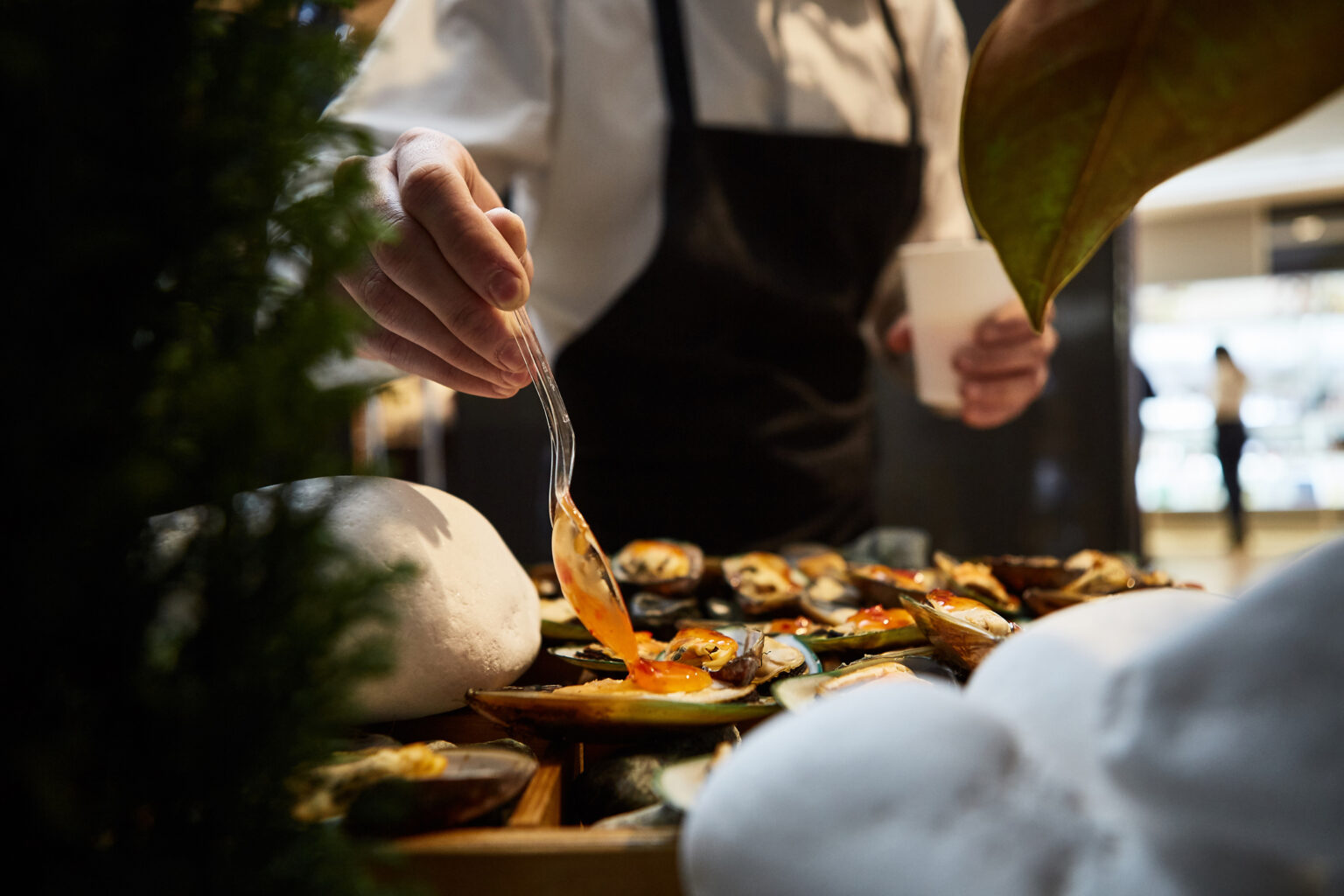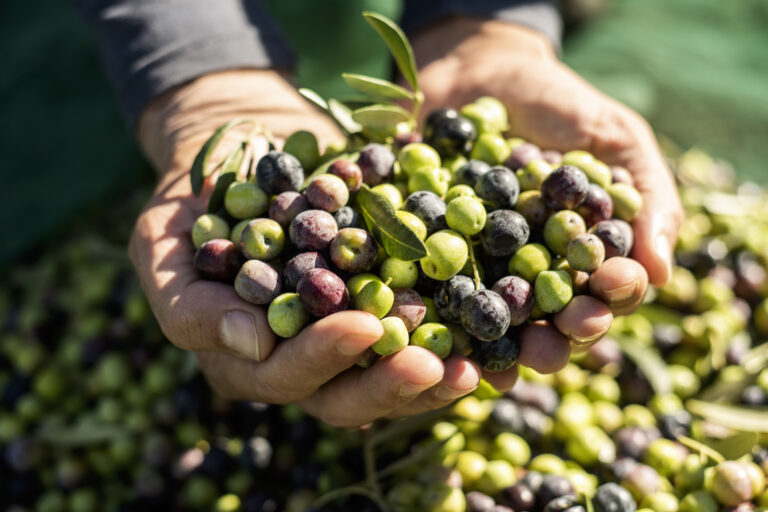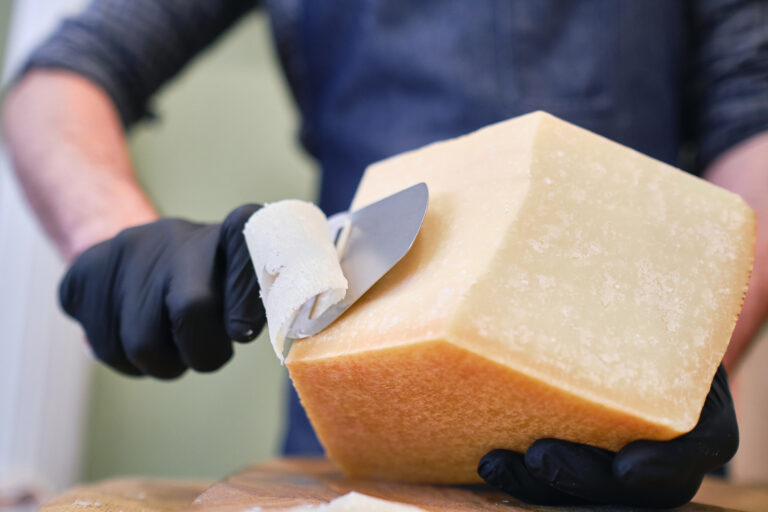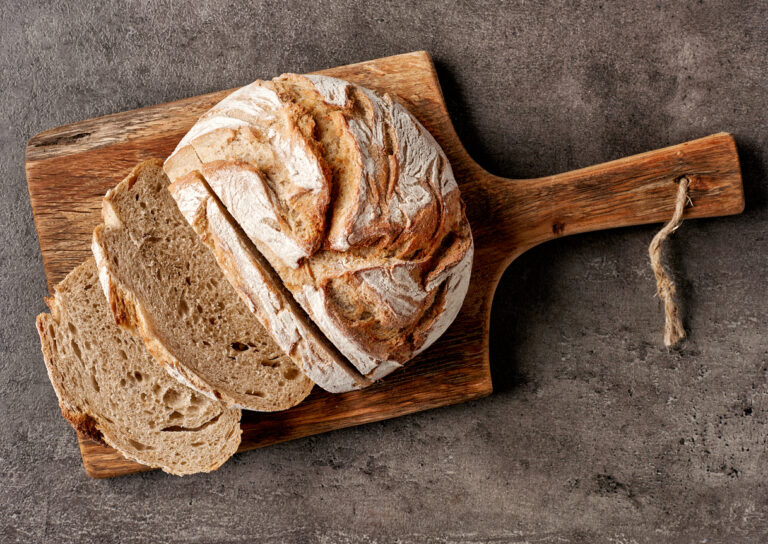
The Keys to Sourcing Specialty Foods
A Q&A With Gourmet Foods International

Specialty foods can add a high-end feel to any menu. But what goes into sourcing these items? The Foodbuy team sat down with Donnie Wade, Senior Vice President of Gourmet Foods International to discuss the specialty foods landscape.
Q: Gourmet Foods International offers a very expansive catalog. How does your team identify which products will be the right fit?
Donnie:
There are a lot of ways we handle sourcing products. First, we do sourcing trips with our sales and procurement teams all over the world.
We also go to domestic and international trade shows. For example, in the U.S., there’s The Fancy Food Show held twice a year. There are about 10,000 exhibitors with high-end specialty gourmet foods from all over the world. These provide opportunities to meet a lot of people in just a short period and we constantly have manufacturers approaching us.
Finally, our customers drive a lot of our inventory. We do business with retailers all over the United States. We’re often the people they come to when they can’t find something specific because we have such a versatile selection. As a result, a lot of the partnerships we’ve established over the years have been customer-led.

Q: When you’re looking at working with a new manufacturer, are you looking for any specific traits or focuses?
Donnie:
Sustainability is huge these days so we’re currently looking for manufacturers that have good practices.
Food safety is paramount, as well. We require certain documentation from manufacturers to make sure they have the right food safety protocols. If they can’t meet those requirements, we’re not interested in distributing their products.
Of course, food quality is always going to be a big priority, too. On top of that, we’re looking for unique products, local products, and products with a story to tell.
Q: Aside from making sure that you’re focusing on working with suppliers who are sustainability-focused, do you have internal initiatives surrounding sustainability?
Donnie:
Yes. We drive a lot in our business. That’s what you have to do to get the products to customers. But that does lead to a big carbon footprint. So, we have a few big initiatives to combat that. One is the goal of carbon neutrality by the year 2050. That’s a big step, but we’re slowly working our way to get there.

We’re currently adding solar arrays to all our distribution center buildings, starting with the ones we have in West Caldwell, NJ and Colton, CA.
We’re also using kinetic trailers now. These trailers have a battery gathering pack underneath them. The motion of the wheels charges the battery, which then is used to keep our food cool during transport, cutting down on the fuel the trucks need.
We also have infrastructure like an ammonia system here at our Atlanta facility which has zero ozone depletion effects and is more cost-effective. Then we have recycling programs in all our buildings as well as low-emission lighting.
We’re doing what we can to make changes that are good for the environment and our customers.
Q: Switching gears here: in the world of specialty foods in general, are you noticing any current trends as far as demand?
Donnie:

There’s currently a big focus on diversity. Some of our customers now have initiatives to increase their spend with diverse suppliers. As a result, we’ve needed to start indicating which of our suppliers are diverse owned. We’ve even created a catalog of just our 175 diverse suppliers.
Another trend is a demand for prepared items. A lot of operators don’t have the staff they had pre-COVID, so chefs and kitchen managers are looking for products that are easier to get to the plate with smaller teams. 15 years ago, we saw the opposite: there was a big push for scratch-made, but that’s just not possible for everyone right now.
Local products are still in huge demand, as well. We pride ourselves on offering those across distribution centers.
Interested in working with Gourmet Foods International? Speak with your Foodbuy account manager today.



